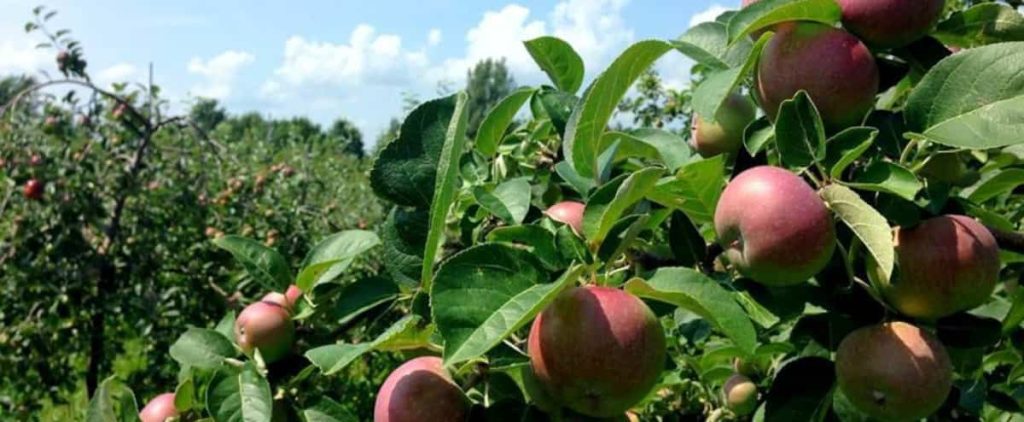
Quebec apple growers severely affected by climate change are seeking funding from the Quebec Ministry of Agriculture, Fisheries and Food (MAPAQ) to facilitate the adaptation and modernization of orchards in the province.
Eric Rochon, president of the Quebec Apple Producers, requested a total of $30 million over six years. It took advantage of the start of the apple-growing season to make the announcement at a press conference Sunday morning.
“Our adaptation problems are enormous and have significant consequences on all links in the chain from production to distribution, not to mention consumers,” raises the man who also owns Rochon et Frères Farm.
With increasing extreme weather events due to climate change, the lack of a funding program is further hurting producers. The Orchard Modernization Program of the Government will end in March 2021.
“The summer of 2023 will be characterized by unprecedented extreme weather events. […] The government must support the apple sector to adopt a strategy for growth and adaptation to today’s new realities,” said Martin Caron, President General of the Union des Produces Agricole.
A different request
In 40 years of operation on Île d’Orléans, Domaine Orléans co-owner Jacques Paradis has seen a change in demand over the years, after which apples became more popular due to their longer shelf life.
“The early varieties of apples are coming out. As the cost of groceries skyrockets during winters, people turn to apples that have a longer shelf life,” he explained.
Therefore, planting and adjusting new apple trees will not produce them for a few more years.
“We have to isolate and replant new varieties. But when you uproot an apple tree that’s already producing and replant another one, you have it for at least 5 or 6 years, but at the same time it’s necessary because we can’t survive without it,” he said.
Difficulty for inheritance
He also said that while it’s not a big problem for him now, the lack of funding will seriously hurt the next generation of apple growers.
“It will definitely take funding if we want to keep it because the young people who are in the business and getting the plantations will have to adapt and that is expensive.
Watering and spraying are examples of this, but in 40 years the number has gone from seven a year to a good twenty, and costs about $600 per operation.
“Products cost between $700 and $800 per litre. It is very expensive, but again, we have no choice because of climate change, so these are expensive,” he concluded.






More Stories
Sportswear: Lolle acquires Louis Garneau Sports
REM is still innovative enough to foot the bill
A trip to the restaurant with no regrets for these customers